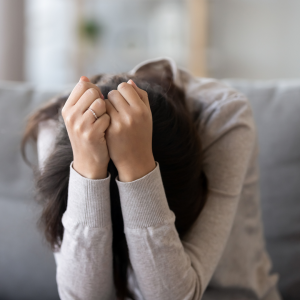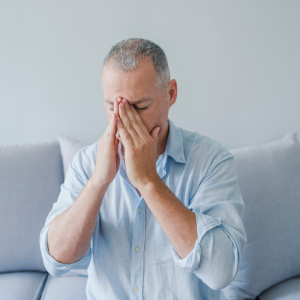Good physical and mental health are inextricably linked. Understanding how they interact can help us make the most of our health and live a long, healthy life. In this blog post, we’ll explore how mental health can affect physical health, from medications to injuries, sexual health to diseases, and what steps we can take to ensure our overall well-being.
The Connection Between Mental Health and Chronic Medical Conditions
Chronic medical conditions can have a significant impact on mental health. The physical symptoms of chronic medical conditions can be debilitating and can lead to feelings of hopelessness, anxiety, and depression. The financial burden of chronic medical conditions can also contribute to mental health problems. People with chronic medical conditions are at an increased risk of developing substance abuse disorders as they try to cope with their physical pain and emotional distress.
The connection between mental health and chronic medical conditions is complex. People with chronic medical conditions are more likely to experience mental health problems, and people with mental health problems are more likely to develop chronic medical conditions. This is called the bi-directional relationship between mental health and physical health.
Many factors contribute to developing chronic medical conditions and mental health problems. Genetics plays a role in both the development of chronic medical conditions and the risk of mental illness. Family history, lifestyle choices, and environmental factors also play a role in developing chronic medical conditions and mental health problems. It is important to understand the connection between mental and physical health so that people with chronic medical conditions can get the care they need to improve their overall well-being.
The Impact of Stress on Mental and Physical Health
We all know that stress can harm our mental and physical health. There is a lot of evidence that mental and physical health are linked. When stressed, our bodies go into “fight-or-flight” mode, leading to many problems, like high blood pressure, heart disease, anxiety, depression, and more. Also, chronic stress can make it hard to keep a healthy weight and increase the risk of eating disorders. Stress can also keep us from sleeping, worsening mental and physical health problems.
So, what can we do about all this tension? First and foremost, it’s important to know how mental and physical health is connected. Once we understand how our mind and body are connected, we can take steps to reduce the stress in our lives. This could include exercise, relaxation methods, counseling, therapy, etc. No matter what we do to reduce stress in one’s life, remember that, our mental and physical health are closely related. Taking care of our minds and bodies will help us live a happier, healthier life.
The Role of Lifestyle in Mental and Physical Health
Our physical health is affected by what we eat, how much exercise we get, and how we handle stress. However, we must realize that the same elements also affect our mental health. Because the mind and body are closely related, our physical and mental health can affect our lifestyle decisions. Maintaining a healthy diet, exercising frequently, and controlling stress can help our bodies and minds stay in good shape.
On the other hand, poor lifestyle decisions might result in mental health issues. According to studies, smokers and drug users are more likely to experience sadness, anxiety, and other mental problems. Additionally, those who are overweight or obese are more likely to experience mood disorders like anxiety and sadness. Making good lifestyle decisions is crucial to safeguard our mental health. Eat a healthy diet, exercise frequently, and learn stress management techniques. We can maintain physical and mental health by caring for our bodies and mind.
The Importance of Physical Health Screening
Regular physical health screenings are necessary for keeping our bodies in top condition and identifying any potential health issues early on. These check-ups help us identify any underlying conditions, giving us the opportunity to address them promptly. During these screenings, it’s important to cover various aspects of our health, such as checking our blood pressure, cholesterol levels, blood sugar, and body mass index. Depending on factors like age, gender, and personal health history, specific screenings like mammograms, pap smears, prostate exams, and colonoscopies may also be recommended.
In addition to regular physical health screenings, it’s equally important to prioritize a healthy diet and proper supplementation. Ensuring we get our daily intake of nutritious foods and taking multivitamins and other necessary supplements can help fill any nutritional gaps in our diet. Also, integrating treatments like a Vitamin D3 IV Therapy Hawaii (if that’s where one is based) or an Immune Revive IV Drip into our wellness routine can provide an extra boost by replenishing essential nutrients directly into our bloodstream. By making these practices part of our routine, we can take proactive steps towards maintaining a healthy body.
The Importance of Mental Health Screening
Mental health is an important part of overall health. It includes our emotional, psychological, and social well-being. It affects how we think, feel, and act. It also helps determine how we handle stress, relate to others, and make choices. Good mental health is not just the absence of mental illness. It also refers to a person’s ability to cope with life’s challenges. We all have times when we feel down or stressed out. But with good mental health, we can get through these times and maintain a positive outlook.
Mental health screening is one way to help identify people who may be at risk for mental illness. Screening can be done through a simple questionnaire or interview. It is important to remember that screening tools are not diagnostic devices and do not replace a full mental health evaluation by a qualified professional. The screening can help to identify mild to moderate mental health concerns before they become more serious. It can also monitor the progress of individuals who have already been diagnosed with a mental illness. By identifying these issues early, people can get the help and support they need to live life to the fullest.
The Importance of Self-Care
Self-care is one of the most important things we can do for our mental and physical health. When we take care of ourselves, we take care of our whole self: body, mind, and spirit. It means making time for ourselves, to do things that make us feel good, both physically and mentally. It’s about caring for our basic needs, like eating healthy foods, getting enough sleep, and exercising. But it’s also about doing things that make us happy and fulfilled, like spending time with friends and family, pursuing a hobby, or taking time for ourselves.
Self-care isn’t selfish: it’s essential. When we take care of ourselves, we can better care for others. And when we’re feeling good mentally and physically, we’re more likely to be productive and successful in all areas of our life. It can also help us cope with stress, anxiety, and depression. Taking time to relax and do something we enjoy can greatly reduce stress and increase our overall well-being.
Taking care of oneself is important for everyone, regardless of age or gender. Everyone needs some self-care! So take a few moments each day to practice self-care and remember that we are the most important person in our life.
Make the Connection and Live a Healthy and Fulfilling Life
There is a strong connection between mental and physical health. When our mental health is poor, our physical health can suffer. This is why it’s so important to take care of both our minds and our bodies. We can promote good mental health by taking care of ourselves physically, eating a healthy diet, exercising regularly, and getting enough sleep. We can also reduce stress by setting aside time each day for relaxation and hobbies we enjoy.
When we take care of our mental health, we also take care of our physical health. By doing things that make us feel good mentally, we are also promoting our physical well-being. We can lead healthier, happier lives by caring for our mental and physical health.





